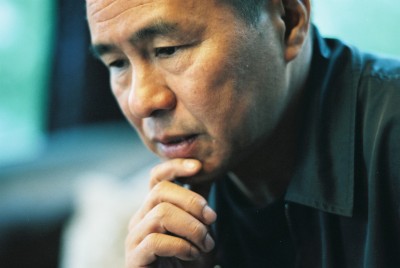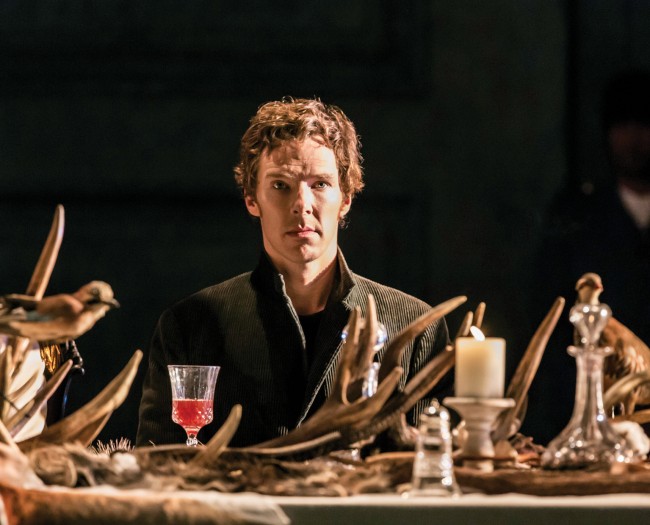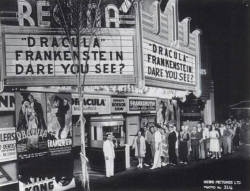Portraits of two beloved icons — Sholom Aleichem and Theodore Bikel — are woven together in the enchanting new documentary Theodore Bikel: In the Shoes of Sholom Aleichem. The two men had much in common: wit, wisdom and talent, all shot through with deep humanity and Yiddishkeit. The film combines Bikel’s charismatic storytelling and masterful performances with a broader exploration of Aleichem’s remarkable life and work.
We will screen Theodore Bikel: In the Shoes of Sholom Aleichem Monday, 10/19 at 7:30 PM and Tuesday, 10/20 at 1 PM at the Ahrya Fine Arts/Beverly Hills, Town Center 5/Encino, Playhouse 7/Pasadena and Claremont 5. Film critic Leonard Maltin and Mr. Bikel’s widow, Aimee Ginsburg Bikel, will introduce and participate in a Q&A after the Monday screening in Beverly Hills. Mrs. Bikel will also participate in a Q&A after the 1 PM screening of the film on Tuesday, October 20th in Encino.
Mrs. Bikel wrote the following about her husband: “Nothing gave Theodore Bikel more pleasure than telling stories and singing songs that connected deeply to his own roots. “I sing the songs of all nations,” he would say, “and all of humanity are my brothers and sisters, we are like flowers in a garden. So,” he would add, “I sing my songs not because they are better, but because they are mine. And if I don’t tend to them, they will wither, and die.”
Mr. Maltin wrote the following, which he titled “Celebrating Theodore Bikel.”
“The challenge in discussing Theodore Bikel is where to start? He led so many lives—as an actor, folksinger, Civil Rights activist, union leader, and more. He is the only person I could think of who could say he worked with Humphrey Bogart, Rodgers and Hammerstein, and Frank Zappa! (He played a band manager in 200 Motels, but gently refused Zappa’s request to dress as a nun for one scene.) He was the original Baron von Trapp in The Sound of Music on Broadway, a best-selling recording artist, and a busy character actor who earned an Oscar nomination playing a Southern sheriff in The Defiant Ones. Those are just a handful of his many credits.
“His lifelong connection to the celebrated author Sholom Aleichem predates his casting as Tevye in the musical Fiddler on the Roof. (He logged more than 2,000 performances, and acknowledged that the play’s universal appeal is based in part on its ability to make the author’s work palatable to a non-Jewish audience. He described it as “Sholom Aleichem lite.”)
“As for his facility with languages, Theo explained that his father spoke only Yiddish at home and prided himself on his library of Sholom Aleichem books, which they were forced to leave behind when his family fled from Vienna to Palestine in 1938. The postscript is quite amazing: his grandmother, who stayed behind, hounded the Nazis who guarded confiscated property—so much so that they eventually let her reclaim the books, which turned up on the Bikels’ doorstep in Palestine, to the utter amazement of Theo and his parents.
“His mother spoke German at home, his father spoke Yiddish, he was given Hebrew lessons as a child, and learned French while visiting a family retreat during the summer. English was his fifth language—the fifth of many. (When he played linguist Zoltan Karpathy in My Fair Lady and George Cukor asked him to draw on his skill with dialects, Bikel reminded Cukor that of the two of them, he was not the one with Hungarian roots.)
“My wife remembers attending protest rallies at Washington Square Park in the 1960s when Theo’s folk songs roused the young people. When Alice and I moved to Los Angeles and went to our first Rosh Hashanah service, we found ourselves sitting in front of Theo and had the thrill of hearing his sonorous voice in prayer all night long.
“He continued performing, and making a difference, to the very end of his life. In 2013 he was invited to appear before the Austrian Parliament to commemorate the 75th anniversary of Krystallnacht—the dreadful night that synagogues were burned to the ground throughout Germany and Austria. He recognized that today’s Austria is not run by, or populated by, the same people who were responsible for those atrocities, and while he could never forget, he was willing to move on.
“Many of his achievements are covered in the documentary Theodore Bikel: In the Shoes of Sholom Aleichem. No one film could include every facet of Theo’s remarkable life…but this one provides a welcome overview. And, like Theo himself, it is consistently entertaining.”




 Best of all (at least from my point of view), we’ll be screening
Best of all (at least from my point of view), we’ll be screening 

 According to
According to  The Ahrya Fine Arts Theater is owned by Shawn Far. He runs Vertigo USA, a successful clothing company based in Downtown Los Angeles, and is a Beverly Hills resident. The Fine Arts will share its name with Mr. Far’s eldest son, Ahrya. Appropriately, our first film beginning September 18th will be
The Ahrya Fine Arts Theater is owned by Shawn Far. He runs Vertigo USA, a successful clothing company based in Downtown Los Angeles, and is a Beverly Hills resident. The Fine Arts will share its name with Mr. Far’s eldest son, Ahrya. Appropriately, our first film beginning September 18th will be